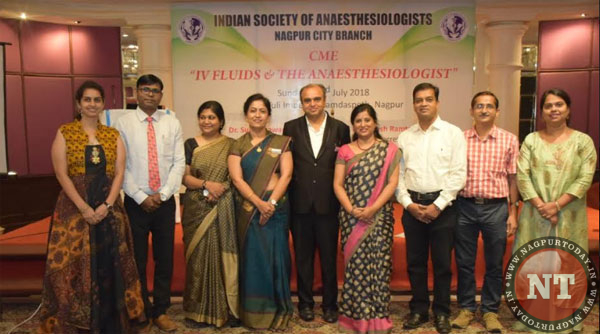
Transplantation medicine is one of the most challenging and complex areas of modern medicine.Organ transplantation is a medical procedure in which an organ is removed from one body and placed in the body of a recipient, to replace a damaged or missing organ. Organ donors may be living (related or non-related) or cadaveric(brain dead, or dead via circulatory death).The need for organ has gone up substantially all over the world. India too suffers from acute organ shortage with little to no solution for this issue.
It is estimated that every year 1.5 lakh people suffer from renal failure out of which only 3000 people get donors. Reasons for shortage of organ donors in India are ignorance, lack of knowledge and few myths and superstitions which go along with the idea of organ donation. Therefore, we need widespread campaigns to spread awareness about organ donation in India and to bridge the gap between supply and demand.
According to Dr Deepak Madankar, Consultant Anaesthesiologist at Meditrina Hospital , anesthesiologist plays an important role in a multidisciplinary team which is necessary for successful organ donation. It includes keeping a patient’s organs well-perfused and well-oxygenated. In this special case, it means keeping the patient’s heart and lung functions stable so that the donated organs can continue to give life in another or several others.
The patient is dead for all of his or her loved ones but alive in ways that will matter to others especially those who will be getting new lease of life in the form of donated organs.
Highly specific intraoperative management by an anesthesiologist is required during organ procurement after brain death. To manage the heart-beating in brain-dead donor, the anesthesiologist must incorporate knowledge of the effects of brain death on each organ system.It’s strange, but these types of cases are not just like other routine ones for us,because in a way the patient is dead but not completely dead.
One single organ donor can save or improve the lives of more than eight people by helping to restore eyesight, damaged tissue and organs and vital functions. Being a part of organ retrieval and transplant team is more humbling, than any other surgery. Organ donation is a way to know that all is not lost in death as life can go on for others with this noble gesture.
What a greater gift can anyone give to the sufferer than the chance to live- A GIFT OF LIFE, A RAY OF HOPE- says Dr.Sunita Lawange , President ISA Nagpur. The noble cause of organ donation makes us realize the paradox that how small and insignificant we all are at the end of our lives, yet maybe so important and so meaningful.
About Author: Dr Deepak Madankar is a Consultant Anaesthesiologist at Meditrina Hospital
















